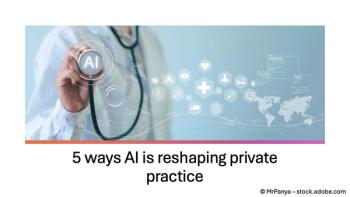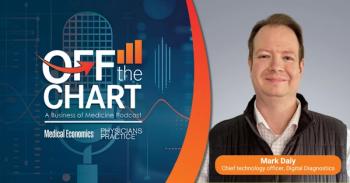
Don't Get Hit By a Bus
Avoid getting "hit by a bus" by paying closer attention to data storage, advises Steve Rebagliati, MD.
How often does your group back up its electronic data, and by what method? Data storage and retrieval seems a mundane topic at best, I realize, but imagine how lost you would be if all your billing data - or clinical or scheduling information - suddenly disappeared.
It would probably feel something like getting hit by a bus.
That's how my software engineering friends describe any IT where total failure occurs because a single weak link in the system breaks. Like a person stepping off the curb a moment too soon and being hit by a bus, you don't want your whole system going down thanks to one seemingly little mistake.
And data retrieval and storage is where many practices are most vulnerable. Big practices can afford to have this taken care of for them. For the rest of us, it's easy to overlook. But dangerous.
The Options
When Apple was top dog in the computer world, storage media for PC-based systems was limited mostly to floppy disks and tape drives. With the decreased costs of storage, options now include internal big-memory hard drives able to hold virtually all your records, and high-storage capacity diskette drives like Iomega zip drives. USB flash drives that fit on a key ring provide mobile data storage. Swappable hard disk drives give you "super-floppy" capacities. And now you can burn information onto CDs or DVDs.
I suggest you consider choosing one of four strategies:
- Outsource with a strong storage services vendor.
- Removable hard drives.
- Server-based hard drives on your network.
- Streaming tape backup.
Outsourcing storage makes it easy. Vendors such as EMC offer multiple solutions and consulting to make the best option clear. It's hard to go wrong with this approach. The only drawback is that the vendors' solutions often seem best suited to large multispecialty groups.
The other three strategies involve different tradeoffs in speed, security, and cost. To avoid being hit by the IT bus, remember you are looking at backup storage here, not primary storage. So if you decide to have hard drive backups, you must have some kind of physically separated device in an alternate secure location. Having a backup server is probably the most robust solution, but requires added costs of offsite maintenance.
Removable hard drives are an economical way to store data and retrieve information at high speeds, but they can be limited in total capacity. That might force you to make multiple disk backups. My personal favorite in this space is the Iomega removable disk products. These products have had some irritating compatibility problems with Microsoft software, in my experience, but if you like a good mix of portability, speed, and price, removable hard drives are a good choice.
For pure ease of backup, security, and cost, a tape drive is the way to go. The tape backup systems are economical and lend themselves to fixed-schedule backups of high volumes of data. A president of a software development firm that I've interviewed before on this subject favors this approach.
Data storage and retrieval may not be as glamorous as EMRs or as sinister as HIPAA compliance, but it is a key part of system readiness. Don't let your practice be hit by the IT bus.
Steve Rebagliati, MD, MBA, is a practicing physician. He offers these resources, ideas, and tips for using information technology to increase revenues, decrease hassles, and free up time, so physicians like you can succeed in a changing world. He can be reached by e-mail at
This article originally appeared in the January 2006 issue of Physicians Practice.
Newsletter
Optimize your practice with the Physicians Practice newsletter, offering management pearls, leadership tips, and business strategies tailored for practice administrators and physicians of any specialty.






